Do you think Nigerians should protest now? Judging from what we know in 2024, should Nigerians have protested against Jonathan’s government in 2012, knowing that those who championed protests in the past are today’s embattled leaders? Was there anything we know now that we should have known then? Are there voices of reason that we should heed now? Are there caution signs as Nigerians gear up to protest? Where did the rain start beating us, and what should Nigerians protest about? Is it really hunger?
Many states in Nigeria saw and supported the process that trumped up President Bola Tinubu. Many of those states, especially in the north, are the ones crying the loudest and calling for protests. Are they really interested in ending hunger or are there unmentioned selfish grievances? Until Nigerians grow above tribalism, ethnicity, religious fundamentalism, mass illiteracy and political unawareness, the nation will not make good progress.
Join our WhatsApp ChannelREAD ALSO: Nigerian Govt Begs Citizens To Shelve Planned Nationwide Protest
As people show anger and prepare for protests against hunger and bad governance, they may also need to look elsewhere, even beyond Tinubu and Buhari et al. Recall that some of those who protested insecurity in the past later became architects of insecurity when they took over government. Is it just about those past and present leaders?
Are Tinubu’s Hands Tied?
An African proverb says that when a harassed elder is in the spotlight, such an elder does not normally want to bathe with sand. This is more so when an elder has a sore need to prove a good point after a costly controversy. When someone is warned against being your friend, you usually try to prove yourself above board. Tinubu received less than 10% of his votes from registered voters, and lost in the key states of Lagos, Kano and the federal capital, Abuja. Yet, he did not consider it necessary to even pretend to do something good in the first six months of office. He courted open trouble from the first minute. This cannot be normal for a president hoping for re-election, or even credibility from opponents. Last week, a group of authors launched a book titled “Elections are Useless, with the 2023 general elections in focus. I tended to believe the authors in the Nigerian context.
Imagine that President Tinubu came to power, and immediately allowed insecurity and food crisis to worsen when everyone thought that Nigeria had seen the worst under Buhari. This tells someone that his hands are clearly directed to bathe him with sand while in the spotlight of expectations from Nigerians. The Tinubu of 2012 could not have made the removal of fuel subsidy the major thrust of his inaugural speech as president, knowing the kind of turmoil it would cause. In the midst of the turmoil, he floated the Naira against a backdrop of an import-dependent economy, without clear efforts to secure agriculture. Nigeria is on a free fall, and Tinubu may not like it, but he doesn’t seem to be able to help the situation, almost as if under oath.
President Tinubu also emerged from a highly contentious general elections amidst a largely discredited ruling party, and the troubles he had with decades of allegations of certificate forgery and a drug peddling past. The least anyone expected from a young Tinubu presidency was a calculated attempt to start on a note of hardship for Nigerians. The parts played by foreign election observers, who said the imperfections of the 2023 elections could not invalidate the results, and the Chicago State University’s dillydallying in Tinubu’s certificate obscurities left much to be desired. This is in addition to how advanced western democracies watched almost complicitly as supposed glitches from their own technology added insult to Nigeria’s election injuries.
Tinubu had ascended the presidency against a backdrop of a disastrous eight years of President Muhammadu Buhari with whom he had denounced former President Goodluck Jonathan in what many now see as pulling the wool over the eyes of Nigerians. Remember that Jonathan had written about how then US President, Barack Obama, and British Prime Minister, David Cameron, had helped Buhari and Tinubu in their attempt to hound him (Jonathan) out of power. The insecurity and corruption sagas of the Jonathan era have now come under more intense scrutiny, looking increasingly like organised episodes to give a dog a bad name to hang it.
If nothing else, the story is told by the comparative realities between the Jonathan era and the contemporary time on the following points used by Buhari and Tinubu to ridicule Jonathan: food security, social security, oil prices, official corruption, inflation, agricultural productivity, electoral transparency, the NNPC, transport, cost of governance, national debt, foreign exchange, foreign currency reserves, etc. These things have all tumbled a trillion times since Jonathan left governance.
Who May Be Tying Tinubu’s Hands?
In June 2023, reports in major global media such as the CNN, BBC and New York Times tended to suggest that removal of fuel subsidy by Tinubu was a welcome development. In 2012, the same powers had assailed Jonathan with criticism for removing subsidy. What has changed? More recently, at the World Economic Forum in Riyadh, Saudi Arabia, President Bola Tinubu argued that subsidy removal saved Nigeria from bankruptcy. And the global economic power houses clapped for Tinubu. While leading protests against subsidy removal in 2012, Tinubu then said that government had “tossed the people into the depths of the midnight sea”. Buhari called subsidy a huge scam. Eight years later, Tinubu has removed fuel subsidy and indeed fueled unprecedented hardship. This shows that Nigeria is in the throes of economic strangulation, the kind that happened in much of West Africa (e.g., Sierra Leone and Niger) in the 2000s.
Vicious global neocolonialism and mercantilist hegemony are real and working. They work through mass illiteracy in developing countries as well as through ethnicity, religion and political sponsorship. These are areas that future protests in Nigeria should be directed. Hunger and bad governance are only a few of the natural outcomes of these deeper national malaise. Whoever controls the reigns of political and religious influence in Africa has a decisive control over the majority.
The uprising that toppled regimes in Tunisia, Libya and Egypt were supposed to be the people’s revolt. But decades on, they have proved to be religious and political ploys underpinned by global domination quests by powerful countries. Muammar Gadhafi of Libya, Mohammed Morsi of Egypt and Zine El Abidine Ben Ali of Tunisia all lost power and died ostensibly as a result of quests to end their eternal rule and suppression of the masses. The same powers such as the US, France and Britain that spoke against them have supported oligarchies, autocracies and perennial rulers in Ivory Coast, Cameroon, Gabon, etc.
READ ALSO: Protest Planners Plotting To Unseat Tinubu – DSS
An analyst makes the point clearer: 11 men, namely Paul Kagame of Rwanda (23 years), Paul Biya of Cameroon (42 years), Teodoro Mbasogo of Equitorial Guinea (43 years), Dennis Nguesso of Congo (38 years), Isias Afwerki of Eritrea (30 years), Yoweri Museveni of Uganda (37 Years), Alassane Ouattara of Ivory Coast (13 years), Gnassingbe Eyadema of Togo (38 years), his son Faure Eyadema of Togo (18 years), Omar Bongo of Gabon (42 years) and his son Ali Bongo of Gabon (14 years) collectively ruled different African countries for a total of 347 years in the name of democracy! Most of these men are still in power as of this writing. The survival or otherwise of regimes in Africa is closely linked to the interests and influences of the global centres of power.
READ ALSO: Nationwide Protests: Foreign Mercenaries Involved – IGP
This has led to questions about the role of foreign powers in West African political instability. Since 1999, when Nigeria returned to democratic rule, every election cycle has revolved around London, which appears to be the conferrer of legitimacy to presidential aspirants. Yet, between 1999 and 2024, Nigeria moved from a fuel price (premium motor spirit) of less than N25 naira to N850; four working refineries to no functional refinery; a dollar to naira exchange of N22 to N1,600 naira; inflation rate of 6% to 40%. It is even worse in some of the scenarios painted about the relationship between France and all of francophone Africa.
Therefore, as Nigeria keeps citing Kenya as an example of the people’s revolt, analysts have held that those riots have the backing of the neo-colonialists. Analysts are also projecting that the protests being planned in Nigeria would not be meaningful without the support of the hegemonists, many of whom are showing signs of lack of support.
Nigerians must ask questions about the attitude of government towards key sectors and resources. For instance, why should Nigeria talk about food shortages, when she has more than 70.8 million hectares of agricultural land (the biggest in Africa), yet with only 6.6 million hectares under permanent crops? Nigeria produces less than 1% of the over 600 million metric tons of wheat it consumes annually.
Before now, ordinary Nigerians did not mind government too much whenever it began the antics of fuel and economic problems. The ordinary Nigerian simply went to the farm and produced food to hold body and soul together. That is no longer possible due to bandits killing and chasing peasant farmers from the forests. Nigerians have become subjects of food donations by countries at war. Government is silent, and has not been seen to launch any programme to deal with insecurity in the farms. Is this normal? It is the same thing elsewhere that serious money flows. Power, steel, agriculture, mineral resources, and as we speak, banking, are lucrative areas that the Nigerian government has been systematically and inexplicably silent, while the spirits tend to shortchange ordinary Nigerians.
What must be done?
As we have noted in a previous editorial, devolution of powers, viable federating units, inclusiveness at the Federal Ggovernment, resource control, presidential powers, the issue of executive, concurrent and residual lists, regional autonomy, structure of law enforcement, justice system, sea and air ports, human rights, gender equality, religious freedom, social freedom and services, are the major grey areas of the 1999 Constitution. The relegation of these issues has led to continued mediocrity, nepotism, wanton insecurity, irredentism and separatisms, disunity, bureaucratic drudgery, and cultural corruption.
The country must find the root causes of these and promptly address them. Disjointed efforts at constitutional amendments cannot deal with the problems. There is still a yawning need for the right context to hear all Nigerians out about the way forward.
On the part of the ordinary Nigerian, it is time to reconsider our so-called independence. Future protests must go beyond immediate governments and focus on real political and economic independence. We have been tossed too much by the vagaries of international diplomacy and dynamics of mercantilist interest. Since 1950, developed countries have had a hand in drawing up Nigeria’s economic plans. They have been decisive in presidential elections. And since then, the country has gone from bad to worse. The audacity with which President Tinubu courted economic troubles with subsidy removal and floatation of the naira cannot be ordinary. There is an unseen hand pushing him to areas he knows will only breed protest. And if we must protest, we need to know the real reasons.
Dr Mbamalu is a Jefferson Fellow, member of the Nigerian Guild of Editors (NGE) and a renowned Publisher.
Follow on X: @marcelmbamalu
Dr. Marcel Mbamalu is a distinguished communication scholar, journalist, and entrepreneur with three decades of experience in the media industry. He holds a Ph.D. in Mass Communication from the University of Nigeria, Nsukka, and serves as the publisher of Prime Business Africa, a renowned multimedia news platform catering to Nigeria and Africa's socio-economic needs.
Dr. Mbamalu's journalism career spans over two decades, during which he honed his skills at The Guardian Newspaper, rising to the position of senior editor. Notably, between 2018 and 2023, he collaborated with the World Health Organization (WHO) in Northeast Nigeria, training senior journalists on conflict reporting and health journalism.
Dr. Mbamalu's expertise has earned him international recognition. He was the sole African representative at the 2023 Jefferson Fellowship program, participating in a study tour of the United States and Asia (Japan and Hong Kong) on inclusion, income gaps, and migration issues.
In 2020, he was part of a global media team that covered the United States presidential election.
Dr. Mbamalu has attended prestigious media trainings, including the Bloomberg Financial Journalism Training and the Reuters/AfDB Training on "Effective Coverage of Infrastructural Development in Africa."
As a columnist for The Punch Newspaper, with insightful articles published in other prominent Nigerian dailies, including ThisDay, Leadership, The Sun, and The Guardian, Dr. Mbamalu regularly provides in-depth analysis on socio-political and economic issues.




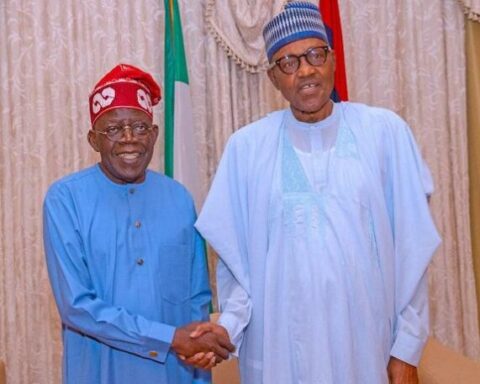
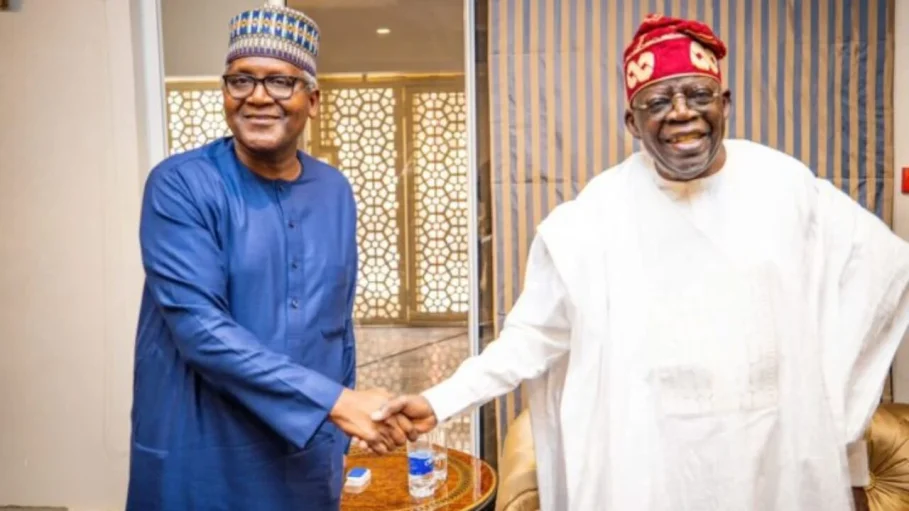



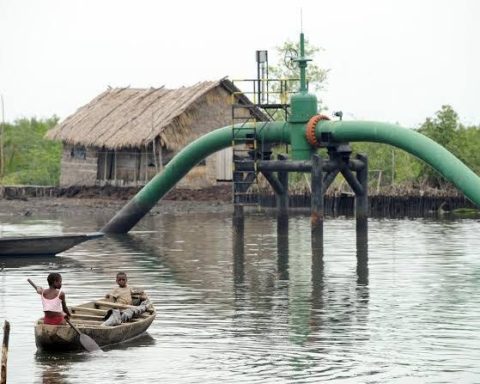
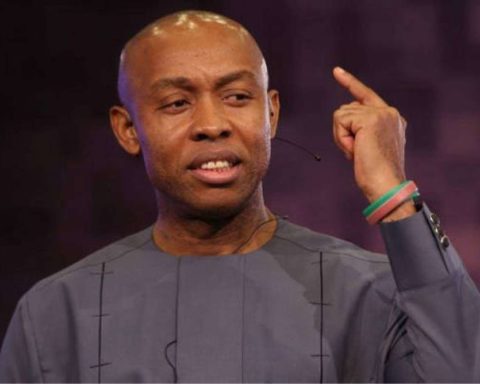

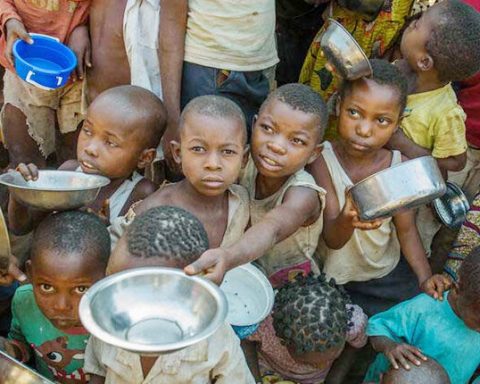
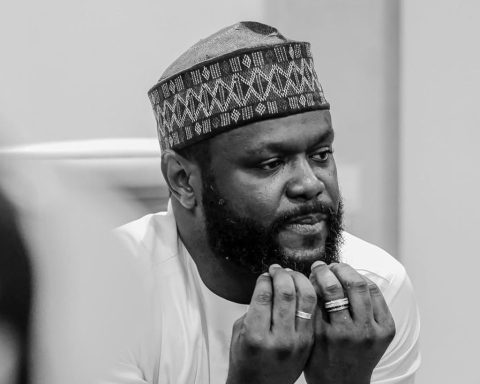
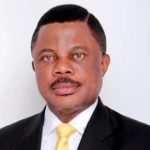

Temp Mail Hi there to all, for the reason that I am genuinely keen of reading this website’s post to be updated on a regular basis. It carries pleasant stuff.